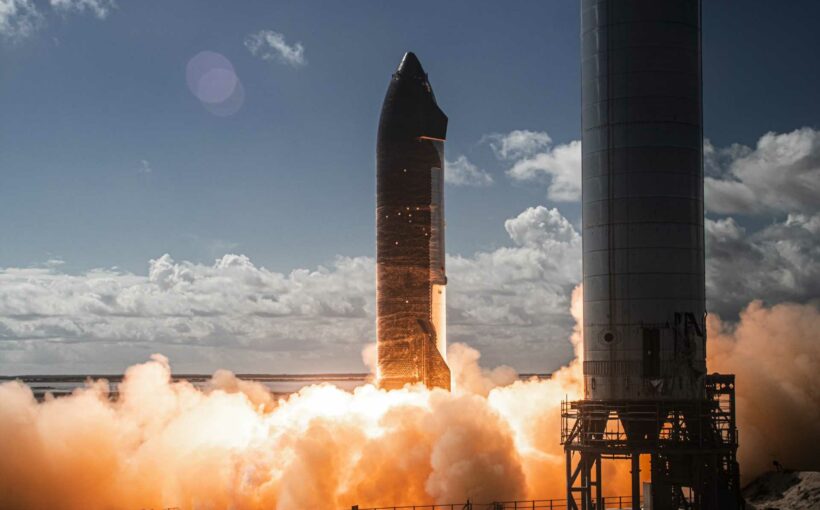- Elon Musk on Wednesday said SpaceX is "hoping" to launch the first orbital flight test of its mammoth Starship rocket in January, depending on testing and regulatory approval.
- Starship is the massive, next-generation rocket SpaceX is developing to launch cargo and people on missions to the moon and Mars.
- The company's next major step in testing Starship is launching to orbit.
Elon Musk on Wednesday said SpaceX is "hoping" to launch the first orbital flight test of its mammoth Starship rocket in January, a schedule that depends on testing and regulatory approval.
"We'll do a bunch of tests in December and hopefully launch in January," Musk said, speaking at a meeting of the National Academies of Sciences, Engineering, and Medicine Space Studies Board.
Starship is the massive, next-generation rocket SpaceX is developing to launch cargo and people on missions to the moon and Mars. The company is testing prototypes at a facility in southern Texas and has flown multiple short test flights.
SpaceX wants Starship to be fully reusable, with both the rocket and its booster capable of landing after a launch to be recovered for future flights. SpaceX's Falcon 9 rockets are partially reusable. The company can regularly land and re-launch the boosters but not the upper portion, or stage, of the rocket.
The company's next major step in developing Starship is launching to orbit. First, the company needs a launch license from the Federal Aviation Administration for the mission, with the regulator expecting to complete a key environmental assessment by the end of this year.
Musk noted that he wasn't sure if Starship would successfully reach orbit on the first try, but emphasized that he is "confident" that the rocket will get to space in 2022.
"We intend to have a high flight rate next year," Musk said.
SpaceX aims to launch as many as a dozen Starship test flights next year, he said, to complete the "test flight program" and move to launching "real payloads in 2023." He stressed that creating a mass production line for Starship is crucial to the program's long-term goals, noting that the current "biggest constraint" on rocket manufacturing is how fast the company can build the Raptor engines needed for Starship.
"I think, in order for life to become multiplanetary, we'll need maybe 1,000 ships or something like that," Musk said. "The overarching goal ofSpaceX has been to advance space technology such that humanity can become a multi-planet species and, ultimately, a spacefaring civilization."
Although SpaceX has a $2.9 billion contract from NASA to develop Starship for delivering astronauts to the moon's surface, Musk said the company is "not assuming any international collaboration" or external funding for the rocket program.
"[Starship] is at least 90% internally funded thus far," Musk said.
SpaceX has raised billions in funding over the past several years, both to fund Starship and its satellite internet project Starlink, with the company's valuation recently hitting $100 billion.
WATCH: SpaceX reveals plan for orbital flight test of its Starship rocket
Source: Read Full Article
